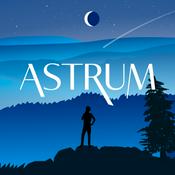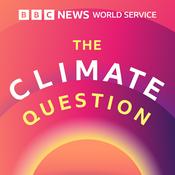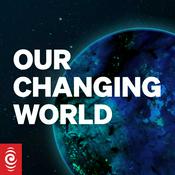Available Episodes
5 of 1150
- Katrina Navickas, "Contested Commons: A History of Protest and Public Space in England" (Reaktion, 2025)A radical history of England, Contested Commons: A History of Protest and Public Space in England (Reaktion, 2025) by Dr. Katrina Navickas is a gripping overview of increasingly restrictive policing and legislation against protest in public spaces. It tells the long history of contests over Trafalgar Square, Hyde Park, Cable Street and Kinder Scout, as well as sites in towns and rural areas across the country. Dr. Navickas reveals how protesters claimed these spaces as their own commons, resisting their continuing enclosure and exclusion by social and political elites. She investigates famous and less well-known demonstrations and protest marches, from early democracy, trade union movements and the Suffragettes to anti-fascist, Black rights and environmental campaigners in more recent times. Contested Commons offers positive as well as troubling lessons on how we protect the right to protest. This interview was conducted by Dr. Miranda Melcher whose book focuses on post-conflict military integration, understanding treaty negotiation and implementation in civil war contexts, with qualitative analysis of the Angolan and Mozambican civil wars. You can find Miranda’s interviews on New Books with Miranda Melcher, wherever you get your podcasts. Learn more about your ad choices. Visit megaphone.fm/adchoices Support our show by becoming a premium member! https://newbooksnetwork.supportingcast.fm/environmental-studies--------29:40
- Peter Newell, "States of Transition: From Governing the Environment to Transforming Society" (Cambridge UP, 2025)What is the role of the state in supporting transitions and deeper transformations towards a more sustainable world? Brought to you by the BISA Environment and Climate Politics Working Group. The role of the state in supporting shifts towards a more sustainable society is receiving increasing academic and policy attention from interest in green (new) deals to planet politics through to more critical attention to the ecocidal and extractivist nature of states. Despite this, the focus often starts and (frequently) ends with the governance of transitions, where the state is merely one actor among many and the tensions and contradictions between the range of roles it simultaneously performs are often left under-analysed. The state is often caricatured variously in political debate as too big, too powerful, too small, too inefficient, too ineffective or too unsustainable. But the reality is more complex, nuanced and contingent on the historical and geographical context, prevailing social relations and the state function and issue in question. States of Transition: From Governing the Environment to Transforming Society (Cambridge UP, 2025) takes a deep dive into the multiple roles states are playing in supporting transitions to a more sustainable world, exploring where there is scope for their transformation. Going beyond unhelpful binaries which cast the state as the central problem or the all-encompassing solution to ecological and social crises, it explores diverse current state practice across key domains from the military and democratic state to the welfare, entrepreneurial industrial and global state. To do this, it builds on theoretical resources from a range of disciplines, as befits the challenge of making sense of these diverse aspects of state power. It moves beyond existing analysis of the ‘environmental state’ and normative projections around the form a ‘green state’ might take, in order to explore scope for a ‘transition state’ to emerge, capable of corralling and transforming all aspects of state power behind the goal of responding to the existential threat of planetary collapse. Peter Newell is a Professor of International Relations at the University of Sussex. He is a specialist in the politics and political economy of environment and development. For more than 25 years he has conducted research, consultancy and advisory work on issues of climate change and energy, agricultural biotechnology, corporate accountability and trade policy working in a number of countries including Argentina, Brazil, Chile, China, Costa Rica, Ethiopia, India, Kenya, Mexico and South Africa. In recent years his research has mainly focussed on the political economy of carbon markets and low carbon energy transitions. Pauline Heinrichs is a Lecturer in War Studies (Climate and Energy) at King’s College London. Her research focuses on international climate diplomacy and the contestation of security in the context of climate change and international ordering. She currently holds a British Academy Knowledge Frontiers Grant working on critical actuarial science and climate justice. Pauline has worked with and led international teams in conflict and post-conflict countries such as Ukraine and the Baltic States, leading on qualitative methods and strategic narrative analysis. She has been selected as an Emerging Scholar by the Milton Wolf Seminar on Public Diplomacy. Pauline has also been a climate diplomacy professional working in foreign policy, and an international climate think tank. Learn more about your ad choices. Visit megaphone.fm/adchoices Support our show by becoming a premium member! https://newbooksnetwork.supportingcast.fm/environmental-studies--------58:06
- Andrew Bernstein, "Fuji: A Mountain In The Making" (Princeton UP, 2025)The Great Wave is perhaps the most famous piece of Japanese artwork: a roaring blue wave and three boats on the ocean. And far in the background is Mt. Fuji. And that’s actually what Hokusai’s famous woodprint is about: Mt. Fuji, volcano and Japan’s tallest mountain. Andrew Bernstein tells the story of Mt. Fuji–from its geographic origins as a violent volcano through to its present day status as Japan’s national symbol and a world heritage site—in his latest book Fuji: A Mountain In The Making(Princeton UP, 2025). Andrew is professor of history at Lewis & Clark College and the author of Modern Passings: Death Rites, Politics, and Social Change in Imperial Japan (University of Hawaii Press: 2006) You can find more reviews, excerpts, interviews, and essays at The Asian Review of Books, including its review of Fuji. Follow on Twitter at @BookReviewsAsia. Nicholas Gordon is an editor for a global magazine, and a reviewer for the Asian Review of Books. He can be found on Twitter at @nickrigordon. Learn more about your ad choices. Visit megaphone.fm/adchoices Support our show by becoming a premium member! https://newbooksnetwork.supportingcast.fm/environmental-studies--------44:56
- Kathryn Chelminski, "Governing Energy Transitions: A Study of Regime Complex Effectiveness on Geothermal Development in Indonesia and the Philippines" (Cambridge UP, 2025)As the world moves with increasing urgency to mitigate climate change and catalyze energy transitions to net zero, understanding the governance mechanisms that will unlock barriers to energy transitions is of critical importance. Governing Energy Transitions: A Study of Regime Complex Effectiveness on Geothermal Development in Indonesia and the Philippines (Cambridge UP, 2025) by Dr. Kathryn Chelminski examines how the clean energy regime complex-the fragmented, complex sphere of governance in the clean energy issue area characterized by proliferating and overlapping international institutions-can be effective in fostering energy transitions at the domestic level, particularly in emerging market and developing economies (EMDEs). Through comparative case studies of geothermal development in Indonesia and the Philippines, the chapters provide two different tales of energy transitions, demonstrating how domestic factors have hindered or facilitated progress. This book will be useful for students, researchers, and practitioners working in international relations, energy politics, political science, development studies, public policy, international law, and sociology. This interview was conducted by Dr. Miranda Melcher whose book focuses on post-conflict military integration, understanding treaty negotiation and implementation in civil war contexts, with qualitative analysis of the Angolan and Mozambican civil wars. You can find Miranda’s interviews on New Books with Miranda Melcher, wherever you get your podcasts. Learn more about your ad choices. Visit megaphone.fm/adchoices Support our show by becoming a premium member! https://newbooksnetwork.supportingcast.fm/environmental-studies--------55:30
- Rob Holmes et. al., "Silt Sand Slurry: Dredging, Sediment, and the Worlds We Are Making" (Applied Research & Design, 2023)Silt Sand Slurry: Dredging, Sediment, and the Worlds We Are Making is a visually rich investigation into where, why, and how sediment is central to the future of America's coasts. It was written by Rob Homes, Brett Milligan, and Gena Wirth, with contributions by Sean Burkholder, Brian Davis, and Justine Holzman and published by Applied Research + Design Publishing in 2023. Sediment is an unseen infrastructure that shapes and enables modern life. Silt is scooped from sea floors to deepen underwater highways for container ships. It is diverted from river basins to control flooding. It is collected, sorted, managed, and moved to reshape deltas, marshes, and beaches. Anthropogenic action now moves more sediment annually than ‘natural’ geologic processes — yet this global reshaping of the earth’s surface is rarely-discussed and poorly-understood.In four thematic text chapters, four geographic visual studies, and a concluding essay the authors demonstrate why sediment matters now more than ever, given our contemporary context of sea level rise, environmental change, and spatial inequality. They do this through a documentation of the geography of dredging and sediment on the four coasts of the continental United States. The book explores the many limitations of current sediment management practices, such as short-sighted efforts to keep dynamic ecosystems from changing, failure to value sediment as a resource, and inequitable decision-making processes. In response to these conditions, the authors delineate an approach to designing with sediment that is adaptive, healthy, and equitable. In this episode, the host asked about the authors’ work with the DRC, which stands for the Dredge Research Collaborative, not the Dredge Research Collective. Learn more about your ad choices. Visit megaphone.fm/adchoices Support our show by becoming a premium member! https://newbooksnetwork.supportingcast.fm/environmental-studies--------57:59
More Science podcasts
Trending Science podcasts
About New Books in Environmental Studies
This podcast is a channel on the New Books Network. The New Books Network is an academic audio library dedicated to public education. In each episode you will hear scholars discuss their recently published research with another expert in their field.
Discover our 150+ channels and browse our 28,000+ episodes on our website: newbooksnetwork.com
Subscribe to our free weekly Substack newsletter to get informative, engaging content straight to your inbox: https://newbooksnetwork.substack.com/
Follow us on Instagram and Bluesky to learn about more our latest interviews: @newbooksnetwork
Support our show by becoming a premium member! https://newbooksnetwork.supportingcast.fm/environmental-studies
Podcast websiteListen to New Books in Environmental Studies, BBC Inside Science and many other podcasts from around the world with the radio.net app
Get the free radio.net app
- Stations and podcasts to bookmark
- Stream via Wi-Fi or Bluetooth
- Supports Carplay & Android Auto
- Many other app features
Get the free radio.net app
- Stations and podcasts to bookmark
- Stream via Wi-Fi or Bluetooth
- Supports Carplay & Android Auto
- Many other app features

New Books in Environmental Studies
Scan code,
download the app,
start listening.
download the app,
start listening.




















![Podcast Cosmosis [Formerly The UFO Rabbit Hole]](https://nz.radio.net/podcast-images/175/the-ufo-rabbit-hole-podcast.jpeg?version=c4cfeed14331265219e0263fd62be755644a8cf4)
















